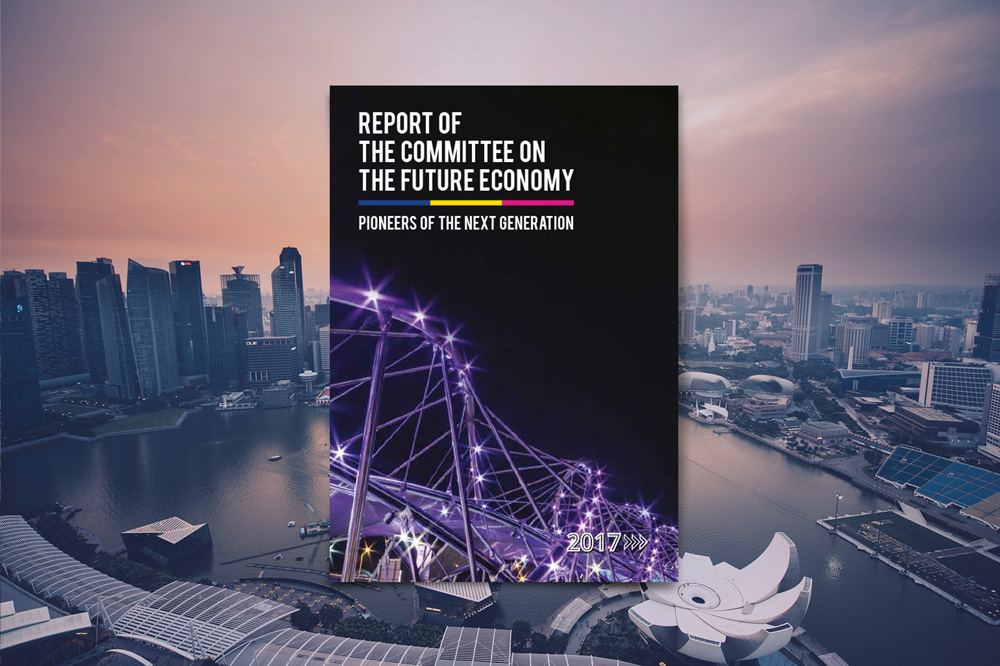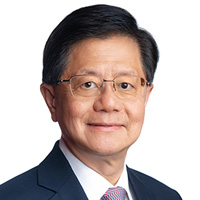The report by Singapore’s Committee on the Future Economy (CFE) released last week may seem somewhat underwhelming – a bit short on directives.
In my opinion, however, it is an appropriate, timely, motivational and actionable document that sets the stage for a new chapter in Singapore’s growth and transformation.
There are two points we must recognise. First, the world is in its Fourth Industrial Revolution – a stage where the only constant is “change.” Second, Singapore is a first world economy and thus directly in the thick of the Fourth Industry Revolution. It has to adjust to its new economic reality.
The hard truth is that government-led growth model of learning and improving on the best from the world has run its course of usefulness.
The break-neck pace of technological development is upending traditional business models, reshaping financial markets, drastically changing governance approaches, and fundamentally changing our behaviour and the way we live. In this age of disruption no job, corporation, institution, or industry is unaffected.
As such, individually and collectively, we have to make quantum adjustments.
Yet, the paradox is that the volatile, uncertain, complex and ambiguous nature of the future makes predicting the unpredictable futile. As a consequence, concrete directives, be it from the government, industry, or academia, on what adjustments to make, such as which industrial sector to get into can be misdirected and even frivolous. History is replete with examples of economic fortune telling that have led businesses to introduce products that nobody wants and eventually, their downfall.
Next chapter
Furthermore, thanks to the great joint effort of the government and its people, Singapore is already at the production possibility frontier where its economy is as productively efficient as the best. This only heightens the potential risks associated with such directives.
The hard truth is that government-led growth model of learning and improving on the best from the world has run its course of usefulness.
The next chapter is for Singapore to lead in creating the future economy. The name of the game, and the only game, is entrepreneurial creativity. We have to dream big of things that do not yet exist, and engage in value creation. Tell ourselves that we can be innovative and lead in creating new possibilities.
And the CFE report does just that. It builds the framework for innovation to take root.

The CFE report focuses on building a new pioneering spirit
The government’s role in economic leadership is to cultivate and enlarge the arena, guide its people by developing value-added skills, and enable them to take on the enlarged stage.
The report focuses on the following areas to advance Singapore’s future economy:
- Building our arena: deepening and diversifying our international connections, enhancing the scope of our business and economic reach.
- Developing capability: acquiring deep skills (especially in the digital space) and strengthening the ability of Singaporean enterprise to innovate and scale up.
- Enabling action: developing and implementing industry transformation maps to allow our corporations and industries to work together synergistically in global competition, and strengthening our innovation eco-system, for example by developing our private equity industry.
And, most appropriately, the report is motivational upfront: it invites Singaporeans to be pioneers of the next generation – this will be rewarding.
Call for transformation
However, to reap the success of this new generation, a mindset change is critically needed. Singaporeans have to transform from an order-taking mindset to one that exudes creative managerial leadership.
This call for transformation has been expressed in several reports and programmes. Before the CFE report, the Economic Strategies Committee Report in 2010 encouraged investing in innovation and productivity. Similarly, the SkillsFuture programme promotes life-long learning. All are important steps to build up the right mindset.
From students to the elderly, from startups to bigger companies, Singapore has already seen significant progress being made.
As the Dean of the National University of Singapore Business School, I cannot say enough about how exciting it is to witness our students becoming creative and entrepreneurial while soundly grounded in analytics. With passion, they are setting up very promising companies while still in school. Many choose jobs not on security and pay, but on how much more they can learn.
Similarly, the population at large has to embrace change. The CFE report has set the stage and we are sure that there will be follow-up actions. Still, it is up to citizens, and businessmen, and enterprises, to be the actors to carry the play forward. To rise to this next level, we must be proactively curious and responsibly courageous to experiment.
Shift in attitude
The important change in mindset is that we should not be afraid of failure. Indeed, entrepreneurial creation needs a trial and error mentality, and not one that is fearful of failure. To attain this mindset change, we have to be forgiving of our own and others’ good errors – errors made out of good intention.
Importantly, we also have to fundamentally believe that we make our own future. Unfortunately, people instinctively tend to blindly take orders and follow work procedures or standard operating procedures, and shift responsibility to others for what we face. To be successful in the next chapter, we should conscientiously adopt a sense of responsibility and purpose in our careers when serving our organisations and society.
These sound simple, but, they represent a major shift in attitude.
Such mindset and attitude changes are implicit in the CFE report. By not furnishing concrete directives, the CFE, through creating the stage, encouraging skills development, and providing enabling facilities, sets the tone to motivate us to be transformed into self-responsible value-adding individuals and organisations for a robust, resilient and creative nation.






